Meet the Candidates: TCEP 2024-2025 Board of Directors
As the 2024 Election approaches, we’re excited to introduce a vibrant and committed line up of candidates running for various seats on TCEP’s Board of Directors and Council. The positions open for election include:
Here’s your chance to get acquainted with these candidates. Visit the Meet the Candidates page on our website to read their statements and delve deeper into their backgrounds.
Mark your calendars for April 20, 2024, when the election will be held during TCEP’s Annual Business Meeting at CONNECT 2024.
DIRECTOR
|
Ben Leeson, MD, FACEP, RDMS
Current Role: Associate Program Director; CHRISTUS Health/Texas A&M Emergency Medicine Residency Program
Medical School: Emory University School of Medicine (2002)
Residency Program: The University of Arizona Emergency Medicine Residency Program (2005)
TCEP/ACEP Participation and Contributions:
- ACEP member (2002 - present)
- TCEP member (2008 - present)
- TCEP EMIG invited presenter (2020)
- TCEP Annual Research Forum - poster presenter (2022, 2018, 2018, 2017, and 2010)
- ACEP poster presenter (2012)
- TCEP CPC Competition, Invited Presenter San Antonio (2009)
Goals While Serving on TCEP Board:
- Work to advance legislation and policies that support emergency physicians, improve patient care, and enhance the practice environment for emergency medicine in Texas.
- Address workforce challenges in emergency medicine, including physician shortages and practice creep by midl-evels, to ensure adequate coverage and access to quality emergency care across Texas.
- Collaborate with other medical societies, healthcare organizations, and stakeholders to amplify the voice of emergency physicians in Texas and advocate for policies that benefit both patients and providers.
Pressing issues facing Emergency Medicine Physicians in the next 3 years: Privatization of healthcare: In a privatized healthcare system, profit motives often take precedence over patient care and medical education. Hospital administrations may prioritize cost-cutting measures, such as closing residency programs, to enhance profitability without considering the broader impact on healthcare delivery and community health. This was recently attempted at our program in Corpus Christi (CHRISTUS Health/Texas A&M Emergency Medicine Residency Program) where there is a paucity of emergency medicine trained physicians.
|
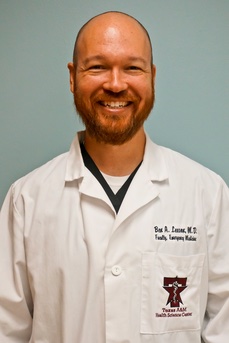 |
|
Current Role: My current role is as the TCEP Young Physician Representative, where I advocate for recent graduates.
Medical School: University of Texas Rio Grande Valley (2020)
Residency Program: University of Texas Health Science Center San Antonio (2023)
TCEP/ACEP Participation and Contributions:
- ACEP member (2018 - present)
- TCEP member (2018 - present)
- TCEP Young Physician Representative (2023-2024)
- TCEP TLAF Fellow (2022 - 2023)
- I have represented TCEP at a number of recruitment events, informing members about TCEP activities and encouraging them to get more active. In addition, I have advocated for emergency physicians at both the state and federal levels.
Goals While Serving on TCEP Board:
- Advocate and protect current EM tort reform
- Push for policies that safeguard EM physicians from scope expansion.
- Recruiting and bringing more emergency physicians into TCEP.
Pressing issues facing Emergency Medicine Physicians in the next 3 years: Scope Creep; Protection of EM tort reform; and Corporatization of EM
|
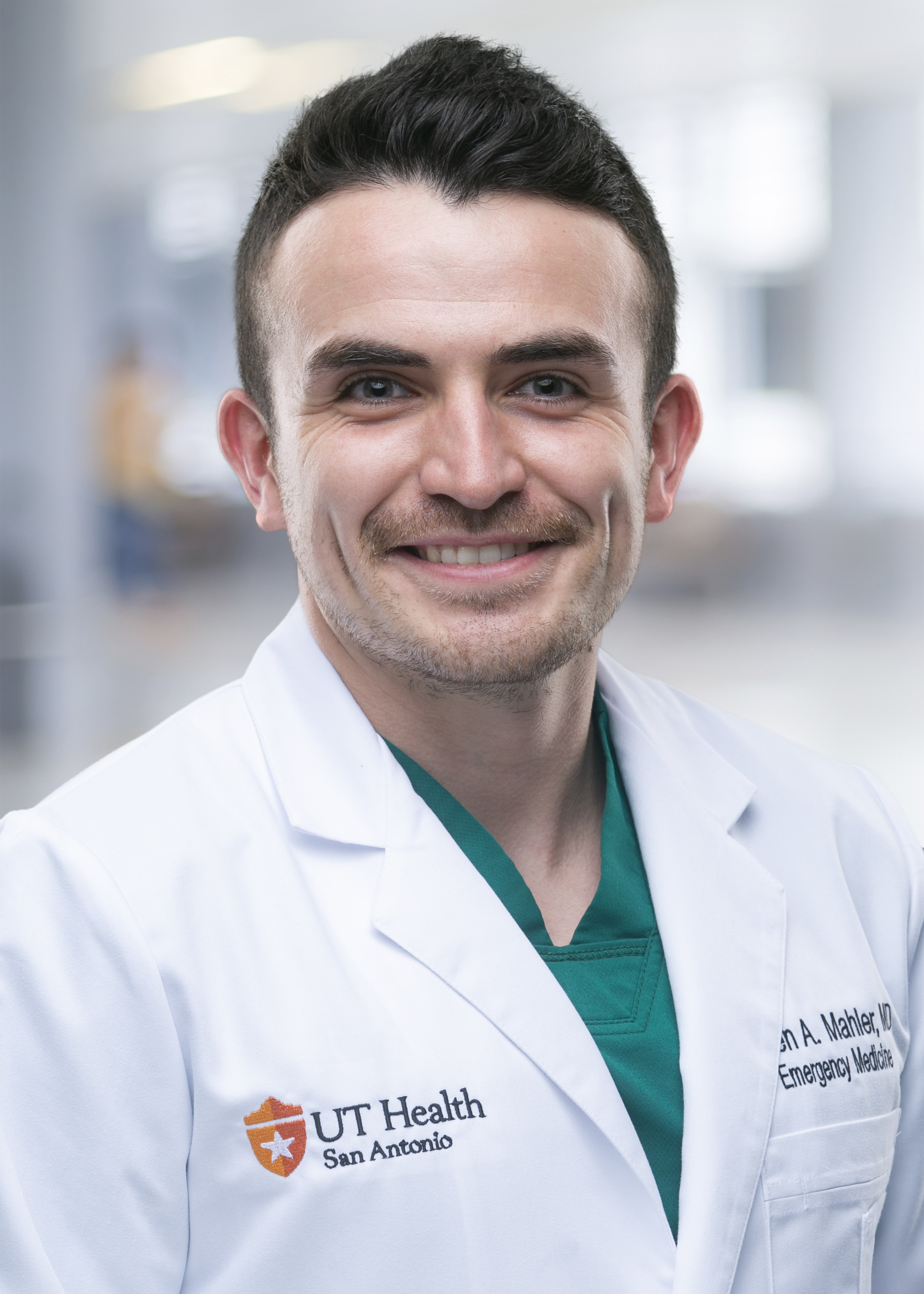 |
Michael Parsa, MD, FACEP
Current Role(s): Director of Undergraduate Medical Education and Clerkship Director at the Foster School of Medicine at Texas Tech University - El Paso.
Medical School: Creighton University; Omaha, NB (1998)
Residency Program: Texas Tech - El Paso (2002)
TCEP/ACEP Participation and Contributions:
- ACEP member (2010 - present)
- TCEP member (2013 - present)
- Chair, TCEP Annual Research Forum (2019 - present)
- TCEP Outstanding Volunteer Award recipient (2023)
Goals While Serving on TCEP Board:
-
Expand value for members - If Texas EPs see TCEP as impacting what we do, day in and day out, more of us will want to play our part. One way we showed this last year was by our advocacy in the case before the Texas Supreme Court of EP Dr. Kristy Marsillo. This type of advocacy, and the resultant favorable outcome, is something that positively impacts all Texas EPs in dramatic ways. In fact, most EPs have no idea just how significant this ruling is. When these situations arise, we need to put all our resources forward, as we did last year. The type of advocacy I would not support is taking positions on divisive issues. SAEM recently published a position statement on the EDUCATE Act, which is before Congress, and fundamentally about hot button cultural issues. This is something members will have strong opinions about on both sides. In such matters, I would propose that we take no stand as an organization.
-
Grow opportunities for research publication out of our research forum - while our research forum participation continues to grow, I hope to work towards getting our Research Forum abstracts published and PubMed indexed, by working with ACEP or creating something like a TCEP semi-annual publication.
-
Increase student, resident and young physician involvement, while keeping mid and later career clinicians engaged.
Pressing issues facing Emergency Medicine Physicians in the next 3 years: Most who have been around a while feel like being an EM physician is not the job it used to be. EP's are tired, over-worked, and feel like cogs in a wheel. We all know the problems and challenges; they are in our face every day. It wasn't always like this, and this didn't happen to our specialty overnight. Trying to go back to the "good ole' days" won't work, but forging a brighter future is possible. ACEP is working hard on this at the national level, but Texas has unique attributes that make it one of the greatest places to practice EM in the world. TCEP can work to create a brighter future for all Texas EM physicians if we focus on the things that unite us and make our work life more manageable and fulfilling. We will not love life if the ED is just a means to an end.
|
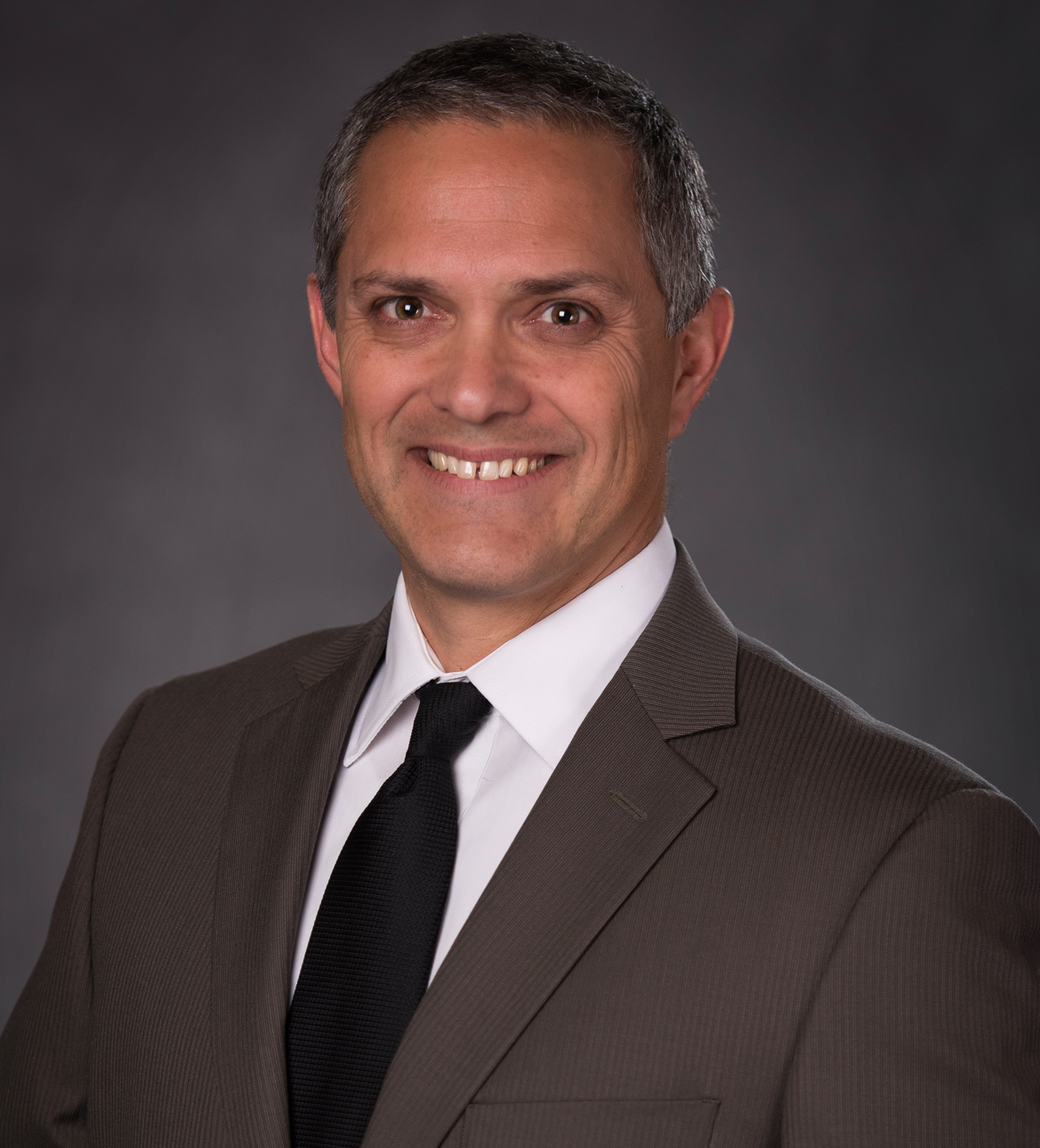
|
Jeff Pinnow, MD, FACEP
Current Role: Partner, Basin Emergency Physicians; Chief of Staff, Medical Center Hospital; ED Medical Director, Pecos County Memorial Hospital; Medical Director, Odessa College Fire and EMS Training Programs; President, Texas Chapter AAEM; Member, TMA Council of Constitution and Bylaws; Member, TEXPAC Candidate Endorsement Committee
Medical School: University of Minnesota (2007)
Residency Program: Wellspan York Hospital (2010)
TCEP/ACEP Participation and Contributions:
- ACEP member (2006 - present)
- TCEP member (2013 - present)
- Member, TCEP CONNECT Resident Program Committee (2023 - 2024)
- Member, TCEP CONNECT Resident OlEMpics program (2022 - 2023)
- Member, TCEP Teller Committee
- Attendee, TCEP BoD meetings as TMA and TAAEM liaison
Goals While Serving on TCEP Board:
- Offer a voice for both community and rural EM doctors at the state level.
- Ensure TCEP is visible and has a voice regarding issues with insurers, CMGs, and medical regulators across the state
- Supports the education, retention, and wellness of resident EM physicians who choose to train in Texas
Pressing issues facing Emergency Medicine Physicians in the next 3 years:
I believe the biggest threat to our specialty here in Texas is from insurance companies. TCEP needs to have a stronger voice in Austin regarding the continued cuts in reimbursement from insurance companies. I have witnessed a 35% decrease in reimbursement from all payors over the past 2 years. The No Surprise Billing act has emboldened insurers to pay less. Since patients no longer had to bear the burden of the balanced bill, BCBS has had nothing to lose. The IDR process continues to be flawed as well, and needs to be addressed at state and federal level. I applaud TMA for challenging the IDR decision making process, however insurers need to be held accountable with payment. These decreases in payments then get passed on to our physicians through lower salaries and lower benefits from their employers.
Speaking of Employers, this leads to problem #2, Corporate Management Groups (CMGs). Texas prides itself on advocating for physician-owned businesses, demonstrated by the state support for Freestanding Emergency Departments. However, TCEP and the state legislature seem to have turned a blind eye to the loopholes revolving around Corporate Management Groups, resulting in the independent groups either being forced out or bought out by CMGs. I would like to see the TCEP Board of Directors take a stronger stance against these Corporate Management Groups at the state level, and advocate for new legislation which eliminates the loopholes surrounding the corporate practice of medicine in Texas.
As profits decrease (see issue #1), and the CMGs continue to proliferate (see issue #2), I believe the scope of practice issue will become more difficult to battle as the interest in profit usurps the responsibility to deliver high quality medical care. ongoing battle during legislative years. We all see this already, with more APP shifts being inserted into our ED schedules rather than Physician shifts. Thus far we have as a specialty have been united against scope creep, but I fear that unification will fracture in the coming years. TCEP, TMA, and TAAEM have been successful thus far in preventing these bills from passing, but the battle continues every legislative session, and I look forward to making meaningful contributions during the next 3 years as a TCEP board member.
|
 |
Anna Suessman, DO, MEd, FACEP
Current Role(s): Medical Director; Pediatric Emergency Dept. at Medical City Children's Hospital and Regional Advisor for Medical City Health System.
Medical School: UMDNJ-School of Osteopathic Medicine (now Rowan University) (2013)
Residency/Fellowship Program(s): Residency - UCONN/Connecticut Children's Medical Center (2016) & Fellowship - Baylor/Texas Children's Hospital (2019)
TCEP/ACEP Participation and Contributions:
- ACEP member (2017 - present)
- Member of ACEP's Pediatric Emergency Section
- TCEP member (2023 - present)
- Louisiana ACEP member (2022 - 2024)
- Louisiana ACEP Board of Directors (2023 - 2024)
Goals While Serving on TCEP Board:
- Establish a robust Pediatric Emergency Medicine (PEM) educational platform encompassing diverse formats, including in-person conferences, vodcasts, and electronic resources featuring high-yield topics and clinical guidelines.
- Contribute to enhancing hospital preparedness for pediatric patients statewide, ensuring facilities are well-equipped and trained to provide optimal care.
- Spearhead the development of pre-hospital PEM workshops and facilitate their dissemination through Texas ACEP, aiming to enhance emergency medical services' proficiency in pediatric emergencies.
- Advocate for and foster dedicated involvement from medical students and residents, recognizing them as the future pillars of our state's healthcare system, and encouraging their active participation in ACEP initiatives and programs.
Pressing issues facing Emergency Medicine Physicians in the next 3 years: A critical challenge on the horizon is the diminishing interest among medical students/residents in pursuing careers as Emergency Medicine/Pediatric Emergency Medicine (EM/PEM) physicians. To address this, it becomes imperative for current practitioners to actively engage in efforts to revitalize the appeal of our field. Creating targeted initiatives to expose medical learners to the diverse and rewarding aspects of emergency medicine is essential. By showcasing the unique challenges, rapid decision-making scenarios, and the gratification derived from making a significant impact during critical moments, we can reignite interest and ensure that EM/PEM residency/fellowship spots do not go unfilled. Additionally, the collaboration and challenges encountered by us emergency medicine physicians will persist as we strive to achieve a balanced approach in patient care alongside Advanced Practice Providers (APPs). Although the contributions of APPs are invaluable to our practice, it is imperative to underscore the essential nature of our supervisory role in ensuring the highest standards of care.
|
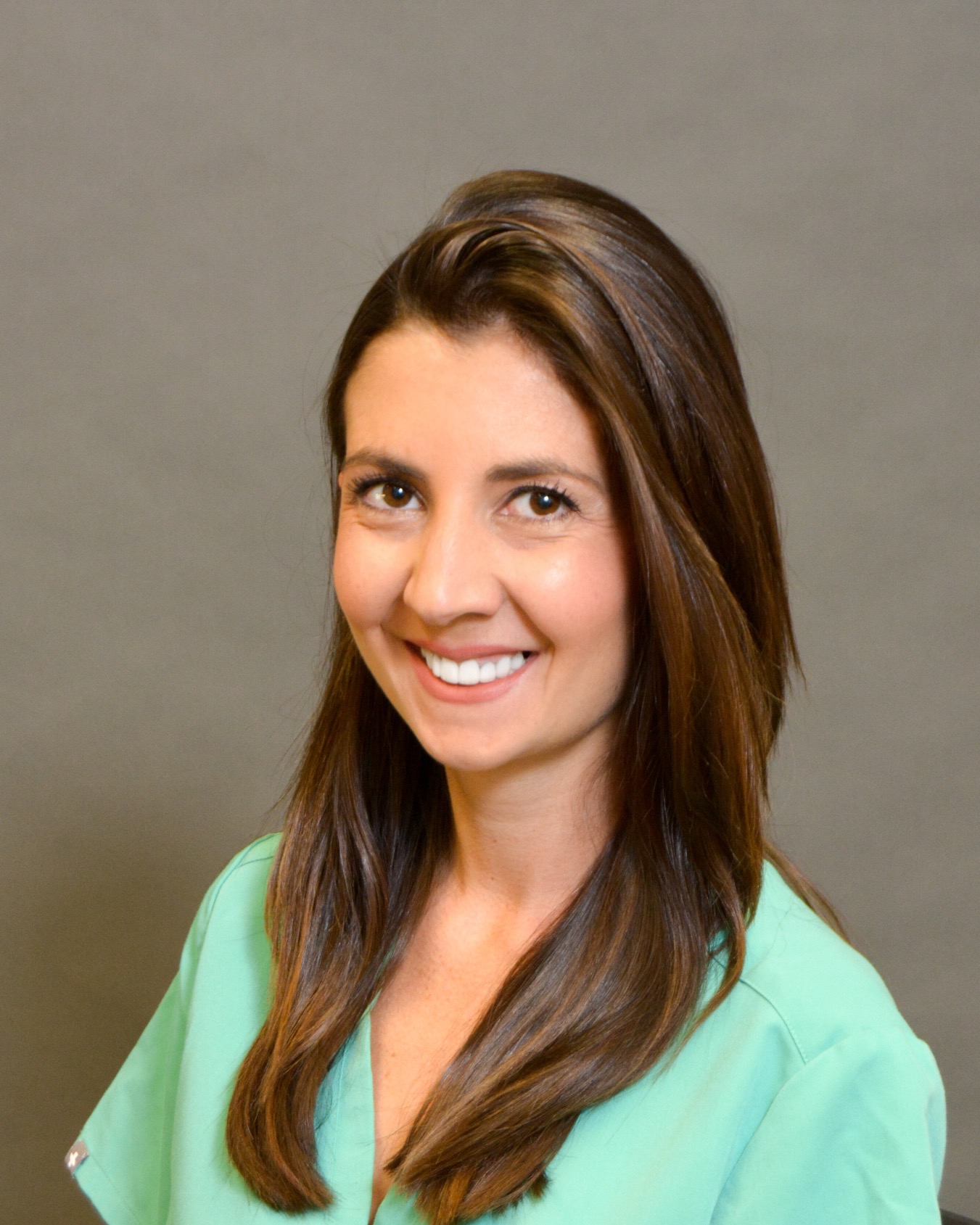 |
YOUNG PHYSICIAN DIRECTOR
|
Brook Danboise, MD, PhD
Current Role(s): Assistant Professor, Associate Research Director, and Community Outreach/Street Medicine, CHRISTUS Health/Texas A&M Emergency Medicine Residency Program
Medical School: Michigan State University College of Human Medicine (2020)
Residency Program: Christus Health/Texas A&M University School of Medicine Emergency Medicine Residency (20023)
TCEP/ACEP Participation and Contributions:
- ACEP member (2019 - present)
- TCEP member (2019 - present)
- ACEP Teaching Fellowship participant (completion March 2024)
- ACEP national meeting participation
- Collaborate with EM resident to develop research presentations for TCEP and ACEP meetings
Goals While Serving on TCEP Board:
- Expand resident participation in advocacy at the state and national level
- Advocate for EM physicians and residents with respect to wellness and mental health
- Address the value and need for EM physicians in rural Texas critical access facilities
Pressing issues facing Emergency Medicine Physicians in the next 3 years: Expanded scope of practice and independent prescribing for APPs; EM boarding; Workplace violence in the ED; and Burnout and mental health of EM physicians and residents.
|
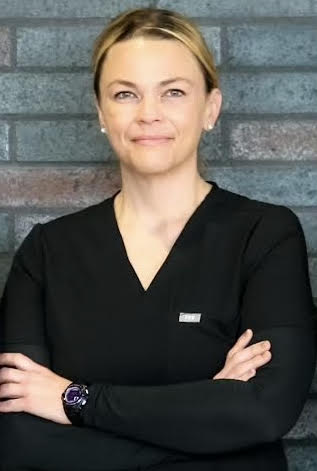 |
RESIDENT DIRECTOR
|
|
Current Role: Resident educator and liaison to BCM and T&M students. Held workshops to inspire medical students to pursue EM.
Medical School: University of Washington (2022)
Residency Program: Texas A&M / Baylor Scott & White (2025)
TCEP/ACEP Participation and Contributions:
- ACEP member (2021 - present)
- TCEP member (2022 - present)
Top Goals While Serving on TCEP Board: By serving on the TCEP board, I hope to create change at the legislative level. I believe board members play a crucial role in advocating for emergency physicians and patients on legislative and regulatory issues affecting emergency medicine. Through my involvement on the board, I hope to contribute to shaping healthcare policies, improving working conditions for emergency physicians, and advancing patient care standards specifically as they relate to liability concerns, scope of practice issues and burden of mental health crisis that is overwhelming our departments - topics that I am very passionate about. Additionally, serving on the TCEP board offers opportunities for professional development and skill-building. I hope to gain experience in governance, decision-making, strategic planning, and conflict resolution. By mastering these skills, I will become a better a team member and clinician. Lastly, serving on the TCEP board will allow me to network with other leaders and influencers in the field of emergency medicine. I will have the opportunity to connect with senior board members, key stakeholders in the healthcare industry, and policymakers, which can lead to collaborations, career opportunities, and professional growth.
Pressing issues facing Emergency Medicine Physicians in the next 3 years: Emergency Medicine in Texas, like in many other states, is experiencing overcrowding due to a variety of factors including limited capacity, high demand for services, and insufficient resource. Certain regions, particularly rural areas such as Central Texas, are facing challenges in accessing emergency care due to the distance to the nearest hospital or ER. ED overcrowding remains a significant challenge, leading to delays in care, increased patient dissatisfaction, and potential compromises in patient outcomes. This is truly a major issue considering that this will influences future reimbursement and compensation. Managing patient flow, optimizing throughput, and implementing strategies to reduce overcrowding will be critical for maintaining the efficiency and effectiveness of ED operations. Addressing these challenges requires a balanced approach to ensure that efficiency is improved without compromising quality of care. Mental health crisis is also an issue burdening the ED. Many areas are under resourced in this realm and are inadequately addressing the mental health needs of its population, leading to increased pressure on emergency services. I believe is partly exacerbated by certain state laws and varying protocols across different jurisdictions.
|
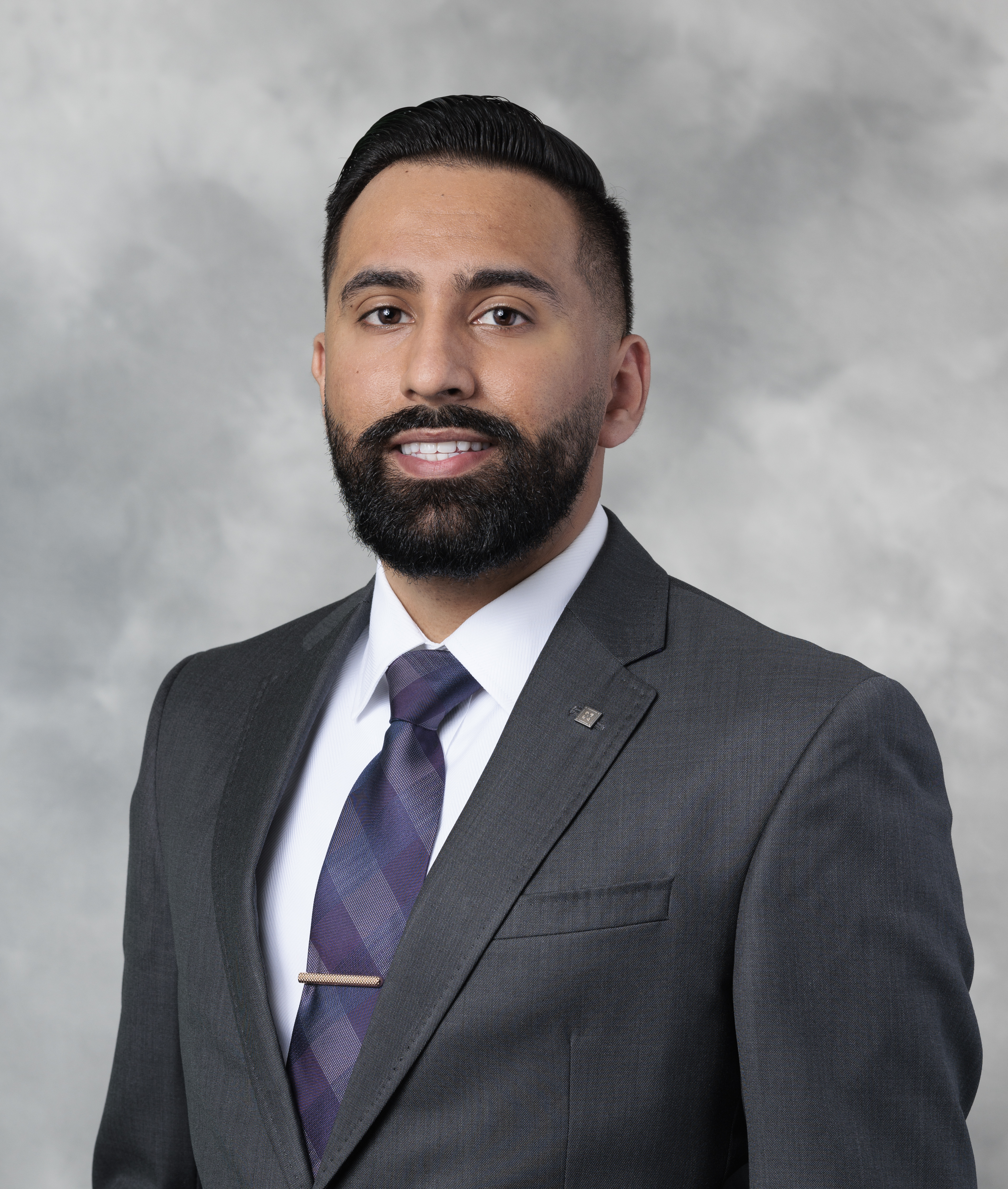 |
|
Current Role: Serve on TCEP Teller Committee.
Medical School: UNTHSC-TCOM (2023)
Residency Program: JPS (2026)
TCEP/ACEP Participation and Contributions:
- ACEP member (2020 - present)
- TCEP member (2020 - present)
- TCEP Teller Committee (2022 - 2024)
- TCEP Medical Student Representative (Board of Directors) (2022 - 2023)
- Attended ACEP 2022 Scientific Assembly and Council Meeting)
Goals While Serving on TCEP Board:
- Facilitating the development of a structured program in conjunction with advocates from each Texas EM Residency to provide crucial updates to residents about the focus and goals of the board after each meeting as well as policy related concerns on the horizon to recruit more young physicians to be actively engaged in TCEP and advocacy.
- Develop a database for residents interested in advocacy to find a mentor within TCEP that can assist them in learning about advocacy and how to navigate getting involved in the organization
- Voice the most common concerns residents in EM are facing today and our questions about the future of EM in order to be able to provide clear, concise answers from the board on how we as an organization are planning to address these issues as well as educated responses on the legitimacy of the concerns
Pressing issues facing Emergency Medicine Physicians in the next 3 years: Public disregard and discontentment with medicine in general, and especially Emergency medicine, as a result of the misinformation perpetuated during the COVID pandemic; Encroachment of APPs into Emergency Departments in an effort for hospitals to save money in addition to physicians being required to co-sign those charts of patients they have never actually seen, making them liable for any complications that may arise; Overcrowding of the ED with non-emergent patients leading to longer wait times and less resources to devote to emergent patients
|
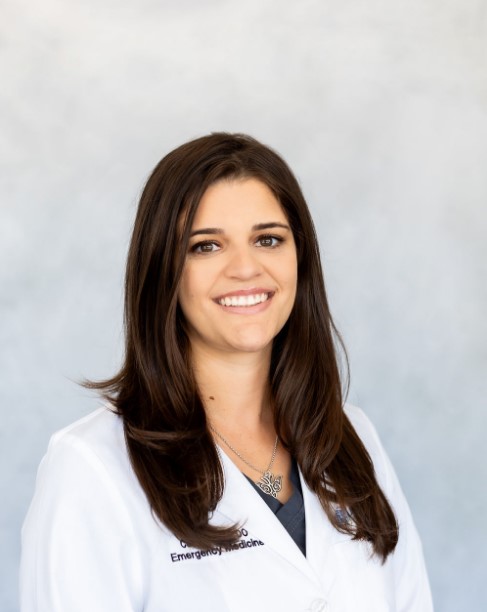 |
|
Current Role: Ben Taub Community Advisory Board founder
Medical School: University of Texas Rio Grande Valley (2022)
Residency Program: Baylor College o Medicine (2025)
TCEP/ACEP Participation and Contributions:
- ACEP member (2021 - present)
- TCEP member (2021 - present)
- Mentorship with ACEP Now's editor in chief.
- Ongoing work for submission to ACEP in collaboration with Baylor's Emergency Medicine and Psychiatry departments highlighting the correlation between suicidality and impulsive behavior as it relates to trauma.
Goals While Serving on TCEP Board:
- Advocate for underrepresented patients
- Provide a voice and give perspective of residents and trainees withing the organization
- Connect with other physicians interested in advocacy and organized medicine
Pressing issues facing Emergency Medicine Physicians in the next 3 years: Emergency department capacity, hospital capacity, and increased boarding of patients; advanced practice providers and scope creep, particularly as it relates to training EM residents; declining reimbursements in relation to Medicare and how it affects patient's ability to find OP follow up.
|
 |
MEDICAL STUDENT REPRESENTATIVE
|
|
Current Role(s): Emergency Medicine Interest Group (EMIG) President; President of the Class of 2025 Student Council; External Relations Coordinator for the Women's Health Interest Group; volunteer program for advancing women's health; Mentor for Alpha Epsilon Delta, Connect the Docs, Health Career Collaborative, and the Latino Medical Student Association; Peer Tutor; Member of the Liaison Committee on Medical Education (LCME) Accreditation Medical Student Committee.
Medical School: Tilman J. Feritta Family College of Medicine (2025)
TCEP/ACEP Participation and Contributions:
- ACEP member (2023 - present)
- TCEP member (2023 - present)
- TCEP Medical Student Committee Liaison for my medical school.
- TCEP Annual Research Forum - poster presenter (2024)
Goals While Serving on TCEP Board:
- Promote Diversity, Equity, and Inclusion in the field of Emergency Medicine: I hope to develop initiatives to increase diversity in emergency medicine by partnering with organizations focused on underrepresented groups like the Latino Medical Student Association and the Student National Medical Association. I would like to also organize events and discussions highlighting the importance of diversity, cultural competency, and speaking Spanish in the field of emergency medicine.
- Assist implementation of emergency medicine education in high school and undergraduate courses: I believe we can harbor an interest in the field as well as inspire the next generation of physicians by providing mentorship, education, and shadowing opportunities early on. Pipeline programs starting as early as high school can also be a way to recruit passionate students. I also hope to connect EM curious medical students with an EM mentor so they can feel comfortable exploring the field and spending time in the emergency room early on in their education.
- To advocate for the interests of medical students pursuing careers in emergency medicine and increase student involvement in TCEP activities: I hope to work with TCEP leadership to create opportunities for medical student participation in committees, conferences, and research projects. I plan to collaborate with the medical student committee and local EMIG chapters to promote awareness of TCEP initiatives and encourage student engagement.
Pressing issues facing Emergency Medicine Physicians in the next 3 years: 1. Higher acuity cases in the ED: As telemedicine and urgent care centers become more readily available for the population, I believe the emergency department will be seeing an increasing number of high-acuity cases that cannot be managed elsewhere. This will come with an overflow of the ICUs, as we saw during the COVID-19 pandemic. I think as a field we need all EM physicians to be THE experts in airway management as well as increase the level of critical care and disaster management training. I haven't worked in the emergency department for long as a medical student but I do believe that we need to be prepared for when the ED becomes the ICU. 2. Healthcare inequities and social determinants of health: Managing the impact of homelessness and mental health crises in emergency departments involves an interprofessional collaboration involving the hospital, community organizations, primary care physicians, and even medical schools. By establishing partnerships in the community, offering telemedicine services, and ensuring follow-up after discharge, emergency departments can better address the needs of uninsured or underinsured patients while advocating for policy changes and preventive strategies.3. Unfilled residency spots and concern for burnout: A common concern heard in medical education is the possible surplus of EM physicians, high burnout rates, and unfilled residency positions. I think as a field we need to address these concerns and take part in a systematic change. Diversity and inclusion initiatives might help recruit students who want to work with the underserved and uninsured population as well as provide support in other languages. Flexibility in scheduling and training, safe environments not just for females but for all physicians, and perhaps loan-repayment options can be incentives for medical students to want to pursue emergency medicine and also increase retention.
|
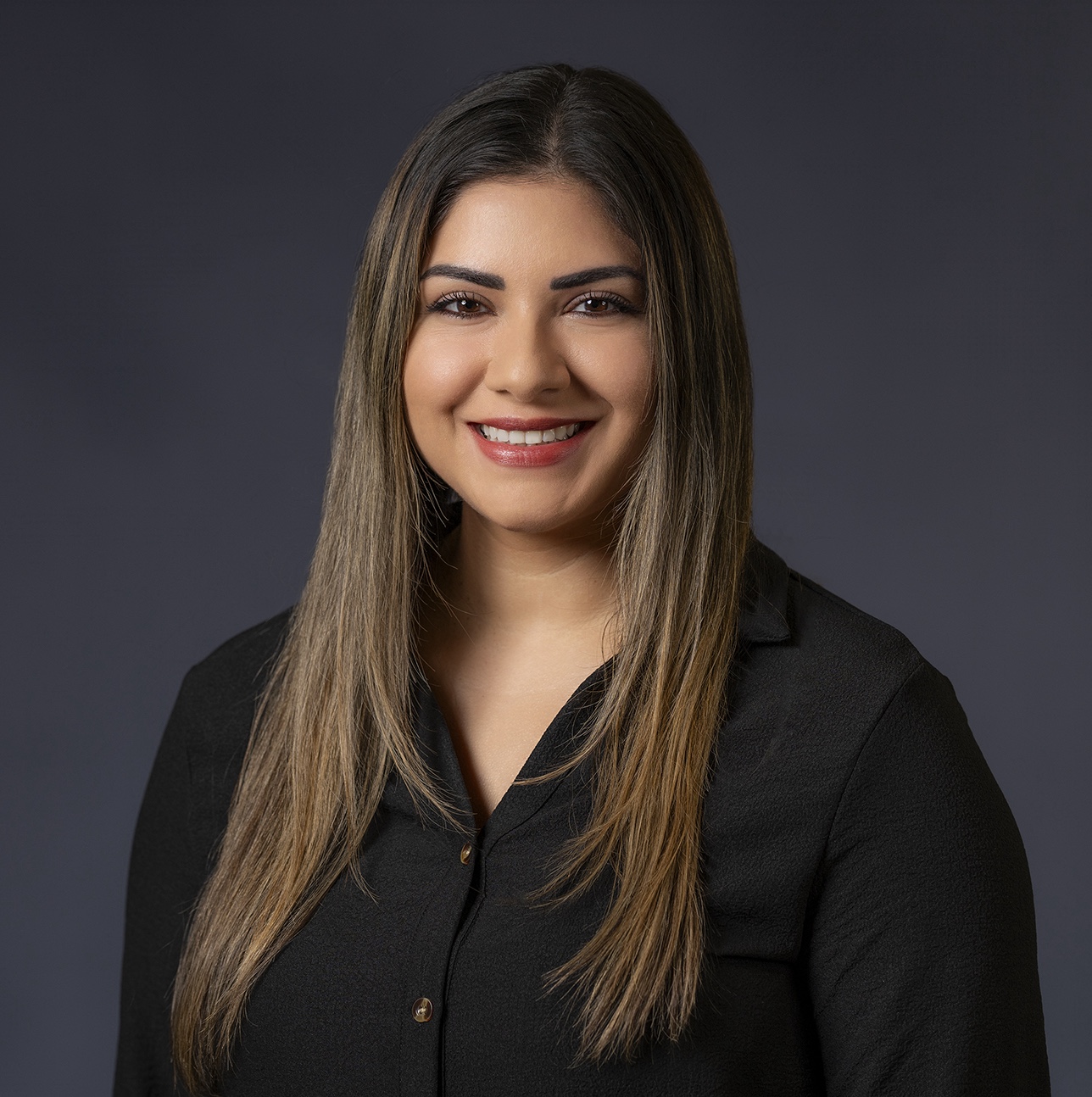 |
|
Current Role(s): President & Founder of Clinical Pearls Across Specialties (CPAS); Member of Student Society of Emergency Medicine (SSEM).
Medical School: McGovern Medical School (UTHealth Houston) (2026)
TCEP/ACEP Participation and Contributions:
- ACEP member (2022 - present)
- TCEP member (2022 - present)
Goals While Serving on TCEP Board:
- Listen - In my presidency for CPAS, so much of my role was actively listening and looking out for what was needed for preclinical medical students. I was constantly taking in feedback and pursuing specialties and topics students wanted to learn about. In the same way, I want to hear about what medical students interested in EM, residents, and faculty need and take the action to meet those needs. I hope to be the voice accurately representing medical students and helping to improve emergency medicine as a whole.
- Ramp up excitement for emergency medicine! After hearing about the number of unfilled positions in emergency medicine residency, I hope to help bring back the excitement about pursuing this career. Even as a second year medical student, I have heard feedback often about the burnout and challenges of being an emergency medicine physician. I would love to see medical students across the state getting excited about EM and receiving practical advice for how to truly enjoy and succeed in this field long-term.
- Learn - As an incoming board member, I would be here to learn from and partner with the more experienced board members who have been instrumental in developing the strategies to address the issues facing EM and improving physician practice. Ultimately, I wish to be a part of the solution in improving the practice of emergency medicine in Texas and gain the skills needed to be of substantial help to students, residents, and future colleagues.
Pressing issues facing Emergency Medicine Physicians in the next 3 years: There are several issues facing EM and far more than I am even aware of, but I have listed three considerable issues below to address for the benefit of both EM physicians and patients.1 - Match - In 2023, I heard about emergency medicine residencies having an apparent lack of medical students matching and joining these programs. While the number of programs may have increased, student interest still remains a concern given the absolute necessity of staffing emergency rooms to provide exceptional care for patients in the years ahead. 2 - Overcrowding in the EDI recently learned how the effects of an overcrowded emergency room could back up to EMS and seriously threaten patient care. The problem seemed to lie in the incoming flow of patients and the lack of ability to admit patients to the hospital. Even the patient load for residents and faculty significantly exceeded the maximum limits for nurses. I would like to see tools and steps taken to encourage movement of appropriate patients to PCPs, ensure proper care for patients with mental health issues, and additional hospital capacity for admission. 3 - Violence in the ED. In one of the committee meetings I attended, I got to hear first-hand about the prevalence of violence against physicians in the emergency room. It seems that measures need to be taken to ensure the safety of physicians and other medical staff in the ED.
|
 |
COUNCILLOR
|
 |
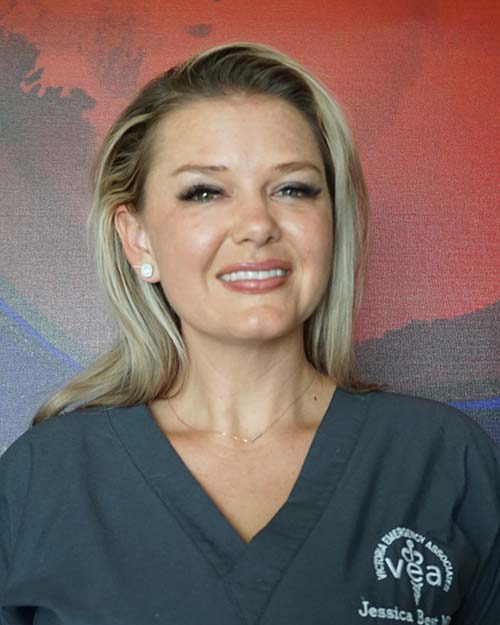 |
 |
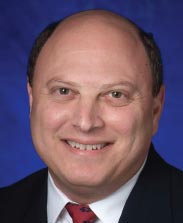 |
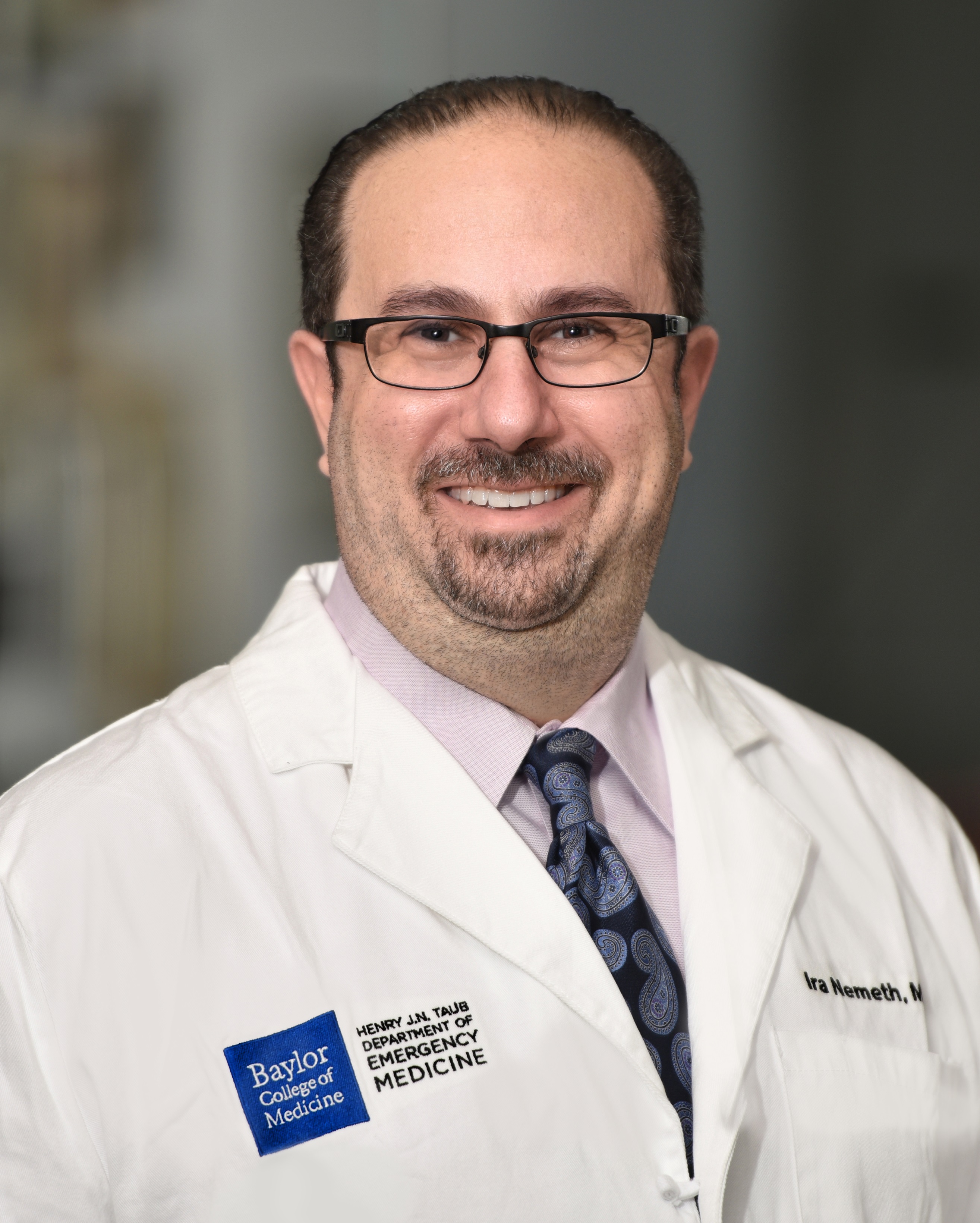 |
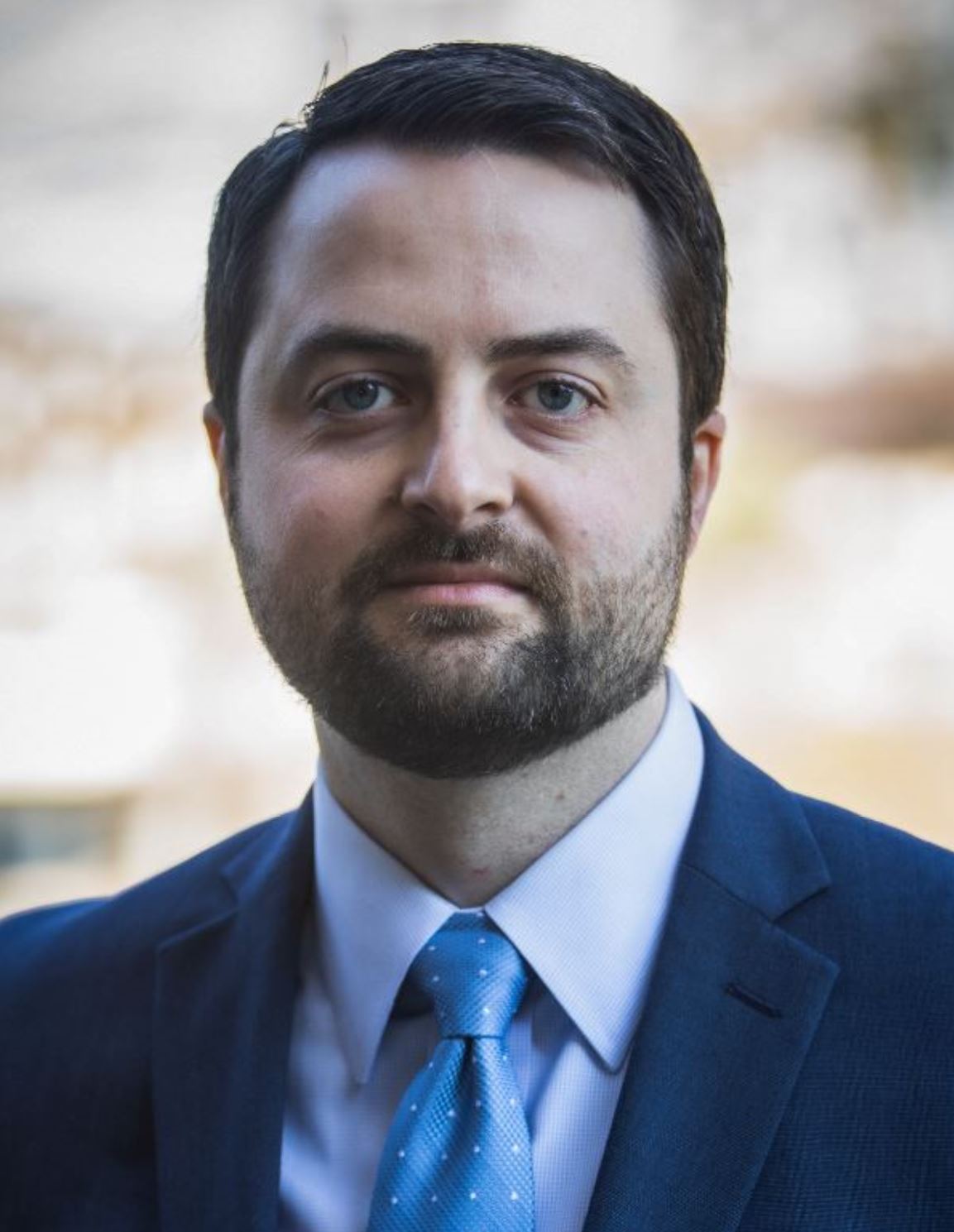 |
Sara Andrabi, MD, FACEP
|
Jessica Best, MD, FACEP
|
Angela Cornelius, MD, FACEP, FAEMS
|
Bobby Greenberg, MD, FACEP
|
Ira Nemeth, MD, FACEP, FAEMS
|
Sterling Overstreet, MD, FACEP
|
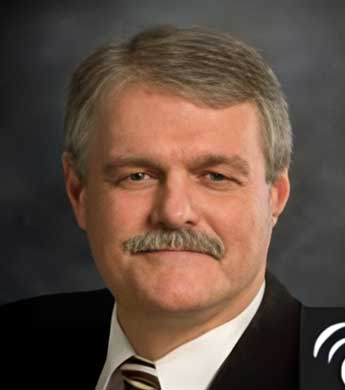 |
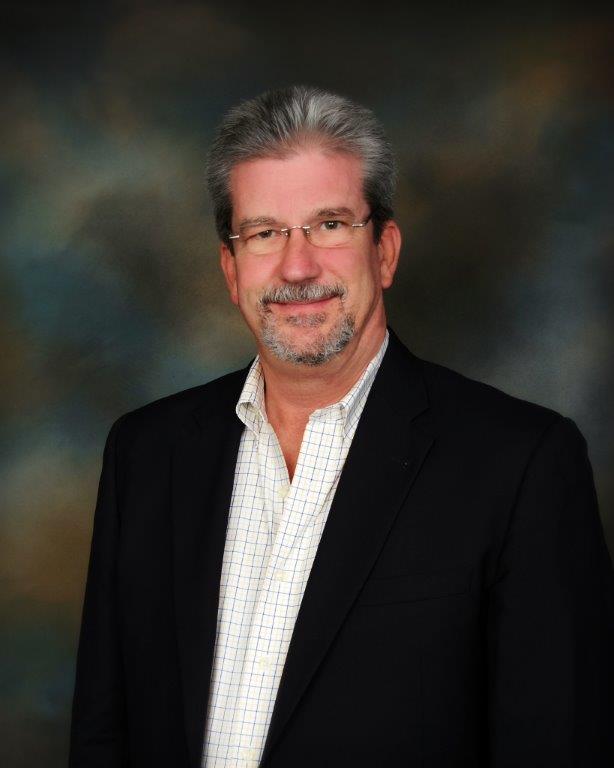 |
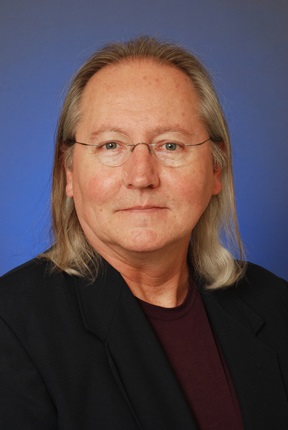 |
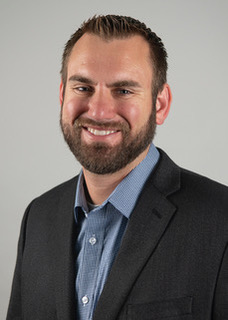 |
 |
 |
Dan Peckenpaugh, MD, FACEP
|
R. Lynn Rea, MD, FACEP
|
Rick Robinson, MD, FACEP
|
Marcus Sims, II, DO, FACEP
|
Sandra Williams, DO, MPH, FACEP
|
James Williams, DO, MS, FACEP
|
|



















